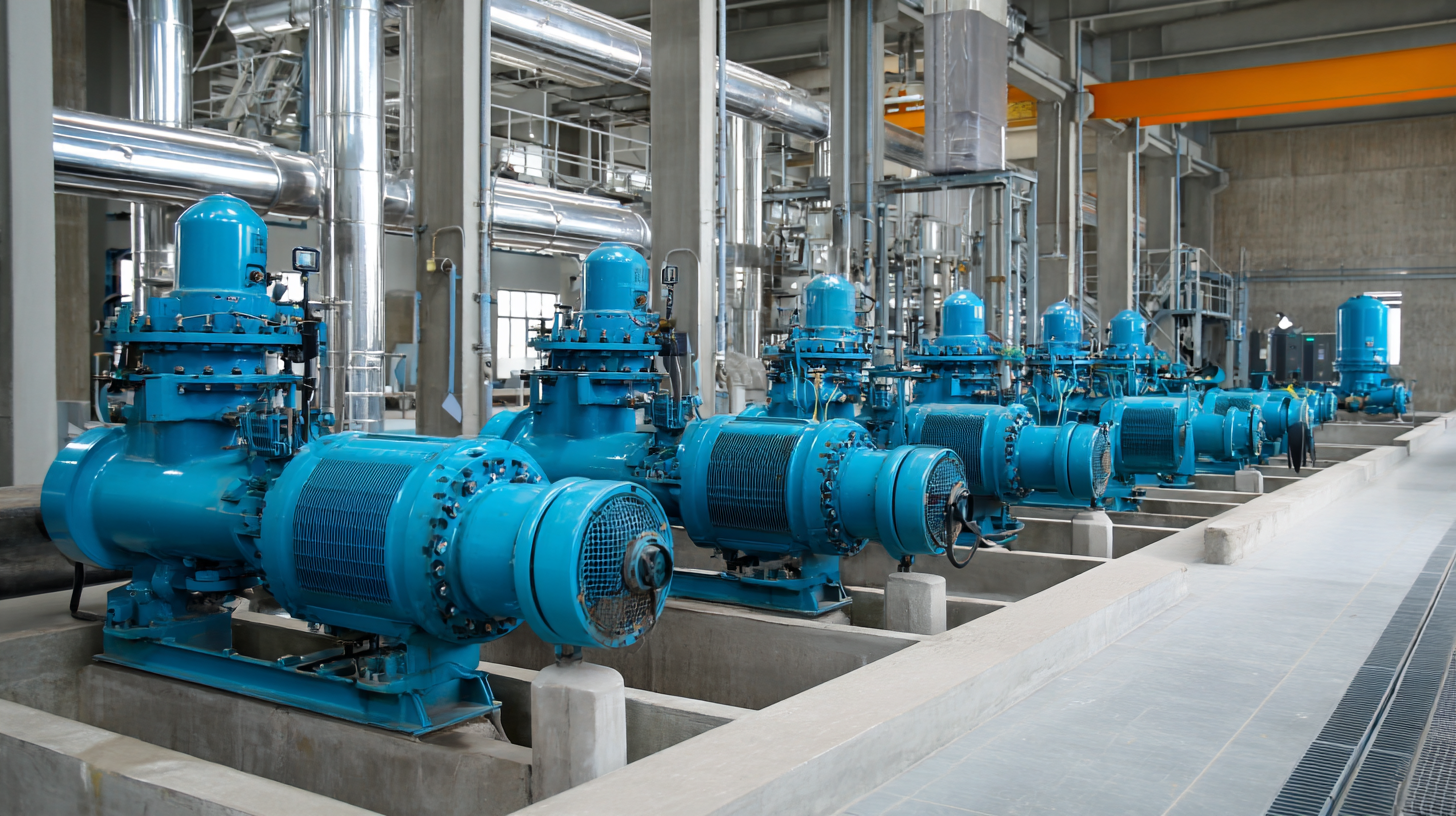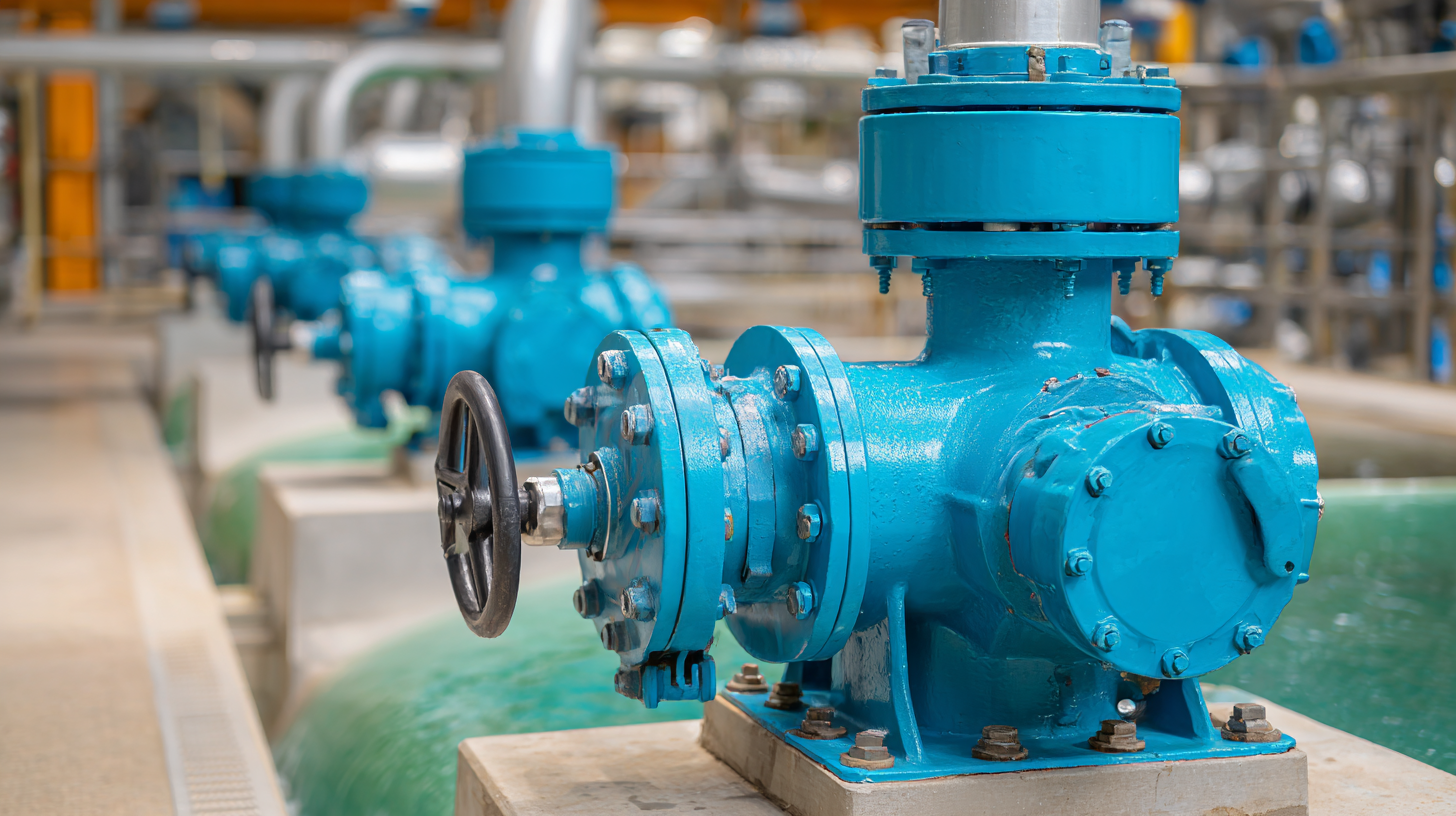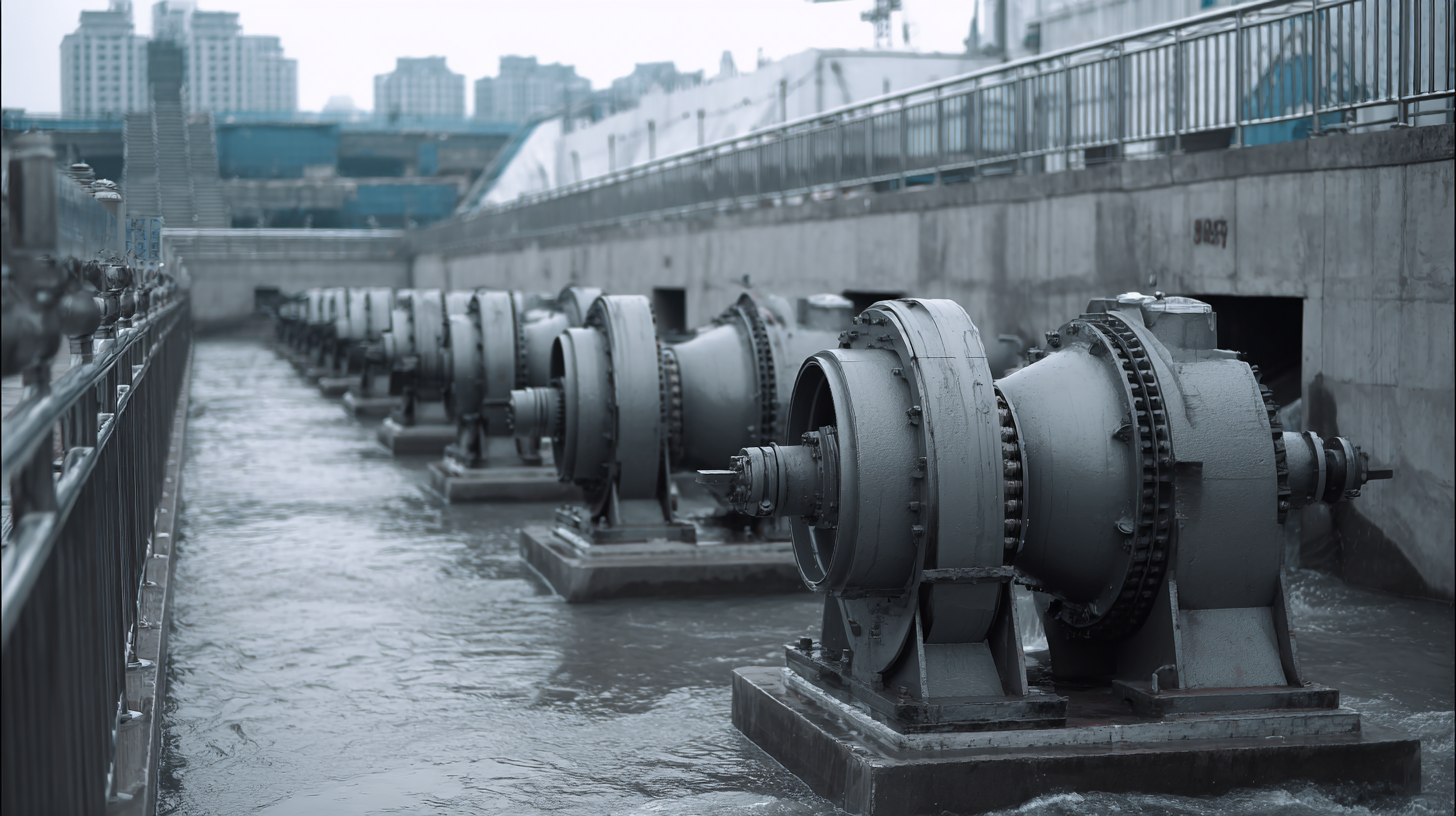
Universal Pumping | High Pressure Pumps
High Pressure Pumps for Difficult to Pump Slurry, Sludge, and Food Waste.
In the field of wastewater management, the importance of effective sludge handling cannot be overstated. Diaphragm sludge pumps play a pivotal role in this process, as they are specifically designed to handle thick, viscous materials with high solids content. According to the Global Wastewater Management Market Report, the need for efficient sludge management solutions is projected to grow by 6.2% annually, leading to increased demands for innovative pumping technologies. The diaphragm sludge pump's ability to operate under varying conditions while minimizing maintenance needs is a critical advantage in today’s evolving wastewater treatment facilities. These pumps are capable of transferring both solids and liquids efficiently, ensuring that treatment plants remain compliant with environmental regulations and operate effectively. Given the rising global focus on sustainable wastewater practices, understanding the operational qualities and applications of diaphragm sludge pumps is essential for optimizing sludge management strategies across the industry.

Diaphragm sludge pumps play a crucial role in wastewater management, particularly in the effective handling and transportation of thick sludge. These pumps utilize a flexible diaphragm mechanism, allowing them to manage highly viscous materials with minimal wear and tear. According to recent industry reports, diaphragm pumps can achieve flow rates upwards of 300 gallons per minute, making them highly efficient for large-scale wastewater processing facilities.
One of the key advantages of diaphragm sludge pumps is their ability to function efficiently in harsh environments. They often feature durable materials, such as stainless steel and specialized elastomers, which enhance their resistance to corrosive substances. This durability minimizes maintenance costs and operational downtime, offering significant economic benefits to wastewater treatment plants. Reports indicate that the reliability of diaphragm pumps can reduce unplanned maintenance efforts by up to 30%, allowing facilities to operate more smoothly.
Tips: Regularly inspect your diaphragm pump for signs of wear, as early detection can prevent costly repairs. Additionally, ensure that the pump is correctly calibrated for the specific sludge viscosity to maximize its efficiency. Consider implementing a routine maintenance schedule to maintain optimal performance over time.

Diaphragm sludge pumps play a crucial role in wastewater treatment systems by effectively managing and transporting thick sludges generated during the treatment process. Unlike conventional pumps, diaphragm pumps utilize a flexible diaphragm to create a seal that allows for the handling of viscous materials with higher solid content. This capability is particularly important in wastewater management, where the composition of sludge can be both variable and challenging. By ensuring an efficient transfer of sludge to various processes such as digestion, dewatering, or disposal, these pumps help maintain the overall efficiency and effectiveness of treatment operations.
Moreover, the design of diaphragm sludge pumps contributes to their durability and reliability in harsh environments typically associated with wastewater management. They can handle aggressive chemicals and abrasive materials without significant wear and tear, reducing maintenance costs and downtime. Their ability to operate dry without damage also enhances their functionality, making them suitable for applications where the level of sludge can fluctuate. In summary, diaphragm sludge pumps are indispensable in optimizing the performance of wastewater treatment systems, ensuring that operators can meet environmental compliance and maintain sustainable practices in managing wastewater.
Diaphragm sludge pumps play a crucial role in various industries by effectively managing wastewater and sludge. These pumps are designed to handle thick, viscous materials, making them ideal for applications in wastewater treatment facilities, food processing plants, and chemical manufacturing. In wastewater management, diaphragm pumps can transfer sludge from clarifiers to digesters, ensuring efficient treatment processes and reducing the risk of clogging.
Tips for using diaphragm sludge pumps include ensuring proper installation and maintenance to maximize pump life and performance. Regularly check for wear on diaphragms and seals, as these are critical components that can affect efficiency. Additionally, selecting the right pump size based on flow rate and viscosity of the sludge can lead to significant energy savings and improved system reliability.
Industries like mining and agriculture also benefit from diaphragm sludge pumps, where they are used to manage slurry and slurry-like materials. This versatility highlights the importance of selecting diaphragm pumps that meet specific industry requirements, ensuring optimal performance and reducing operational downtime. Evaluating the pump materials and configurations can significantly impact the efficiency and longevity of the system in handling challenging sludge applications.

Diaphragm sludge pumps play a pivotal role in wastewater management by efficiently handling thick and viscous sludge. These pumps utilize a flexible diaphragm to create a vacuum that draws sludge into the pump and expels it through discharge pipes, making them ideal for various applications in sewage treatment plants. According to a report from the Environmental Protection Agency, properly maintained diaphragm pumps can reduce operational downtime by up to 30%, significantly enhancing the efficiency of wastewater facilities.
To maximize the lifespan of diaphragm sludge pumps, routine maintenance is essential. Regularly inspect the diaphragm for signs of wear and tear; addressing minor issues early can prevent costly replacements. Additionally, ensure that the pump is kept clean and free of debris, as accumulated sludge can hinder performance.
Another tip for maintaining these pumps is to schedule periodic lubrication of the pump components. This simple act can reduce friction and wear, extending pump lifetimes. The Wastewater Engineering Association recommends establishing a maintenance schedule every 3-6 months to track performance and functionality, which can contribute to a decrease in unplanned maintenance costs by approximately 20%. Taking proactive measures ensures that diaphragm sludge pumps operate efficiently, ultimately leading to smoother wastewater management processes.
| Parameter | Recommended Values | Maintenance Tips |
|---|---|---|
| Pump Capacity (GPM) | 10-200 GPM | Regularly check for clogs to prevent overload. |
| Operating Pressure (PSI) | 20-100 PSI | Monitor gauge readings to ensure optimal operation. |
| Suction Lift (ft) | 10-25 ft | Ensure proper installation to avoid air leaks. |
| Material of Construction | Corrosion-resistant materials | Inspect seals and joints regularly for wear. |
| Maintenance Frequency | Every 3-6 months | Perform routine checks and replace worn parts as needed. |
Diaphragm sludge pumps play a critical role in wastewater management by providing efficient and reliable methods for moving thick sludges and slurries. Their unique design, which utilizes a flexible diaphragm to create pressure and suction, ensures minimal leakage and allows for handling a wide range of materials, including corrosive and viscous substances. This capability positions diaphragm pumps favorably against other sludge pumping technologies, such as centrifugal and progressing cavity pumps, particularly in applications where material abrasiveness could lead to pump failure.
Comparative studies have shown that diaphragm pumps offer superior performance in scenarios that involve high solids content and varying flow rates. Research indicates that the global mining pumps market, anticipated to reach USD 4.8 billion by 2035, reflects a significant shift toward energy-efficient and durable pumping systems. As industries increasingly rely on effective sludge management, diaphragm pumps are becoming a preferred choice due to their low maintenance needs and long service life. Additionally, their ability to handle diverse materials enhances operational flexibility, further solidifying their position in the competitive landscape of sludge pump technologies.






Universal Pumping
625 Apache Trail
Woodstock, GA 30189
Mon - Fri | 9:00 AM - 5:00 PM
Universal Pumping is staffed with industry professionals with 20-45 years experience with high pressure pumping systems. We represent only the “elite producers” in pump manufacturing: Britain’s EMS and Germany’s EMMERICH. Our engineering and manufacturing approach is conservative, and we do not use “guess work” in the design or sales of our pumping and filtration equipment.



